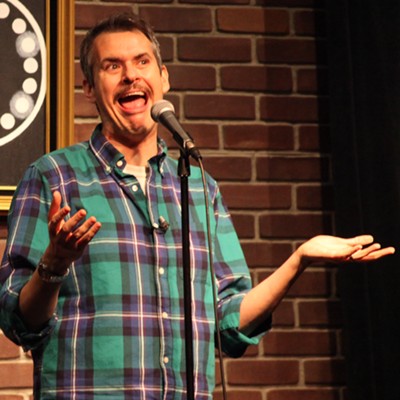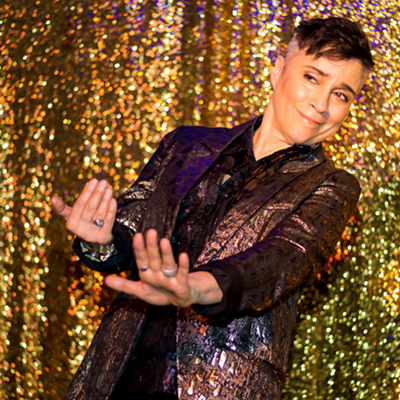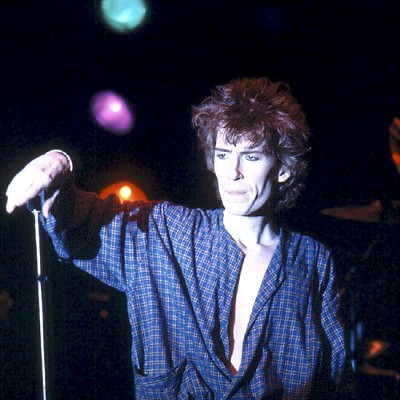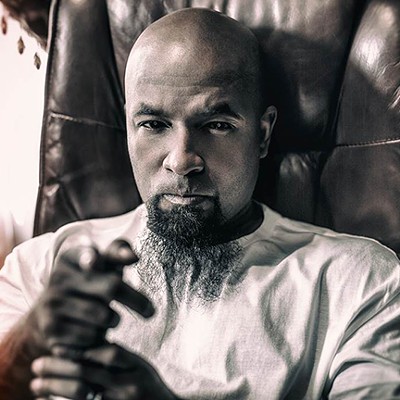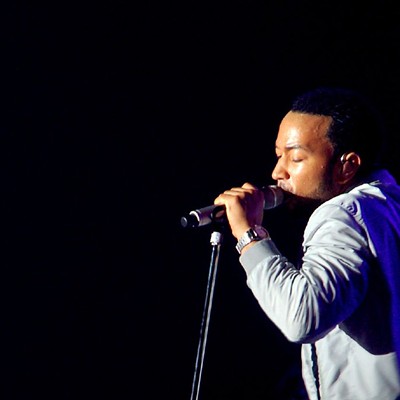JD McPherson and Dylan Pratt, The Flycatcher, April 28
Joshua Levine
Dylan Pratt's solo acoustic guitar and voice combination showed how affecting the singer-songwriter archetype can still be in capable hands, and more importantly, how even this very worn out wheel can be reinvented. Pratt, based in Phoenix, doesn't owe much to folk music or James Taylor-esque confessionals. His songs seemed pieced together from any source that caught his interest, which in turn made him very interesting. This sensibility is found more explicitly on his records, which often have full instrumentation, but was still very palpable in this solo setting, where his songcraft managed to integrate all of the disparate strands of styles into a cohesive and memorable set.
On tour supporting his just released new album, Signs and Signifiers, Oklahoma's JD McPherson is a captivating performer, injecting enough enthusiasm into his mix of rockabilly, traditional country, and jump blues to take it out of the history books and into the present.
Singer/guitarist McPherson and his four bandmates had the skills and songwriting capacity to effectively emulate their formidable influences, but it was their passion and liveliness that raised the music beyond kitsch or tribute, and that's why the group's set was successful. The exceptional organ playing of Ray Jacildo and rousing saxophone intrusions of Doug Corcoran only furthered McPherson's cause and complemented his infectious hollering.
Though the band dressed the part, albeit subtly, matching the era their music is rooted in, you didn't even have to close your eyes to know their sound came across as contemporary, as their material has been refracted through countless generations and numerous perspectives away from its origins. They played with equal portions of punk-like intensity and the simplified repetitiveness of musicians who could have only grown up in the post-sampling age. With McPherson, the groove is king, and everything else serves and embellishes it. These signifiers are important to understanding how the performance was not too far removed from a DJ commandeering a 21st century dance party—we were just moving to a different beat or sample. The aesthetic of taking traditional forms of music and disregarding any notions of reverence, preservation, or authenticity when reproducing it is a great idea, and McPherson, with his collaborators, made it a great sound and the opposite of a reproduction.


